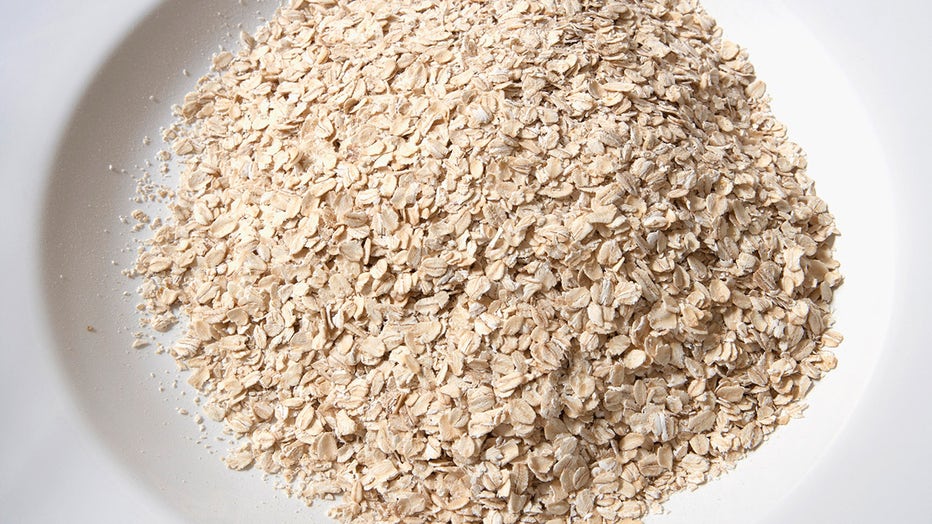‘Oatzempic’ diet: What to know about the TikTok trend using oats
Controversy surrounding diabetes drug, Ozempic, being used tor weight loss
The diabetes drug, Ozempic, has been in the headlines, causing quite a stir. Senior writer for Drugwatch.com, Terry Turner, joined LiveNow to discuss how some people are ending up in the hospital, for misusing Ozempic as a weight loss drug.
On TikTok, another trend has emerged, showcasing social media users blending together a concoction of half a cup of rolled oats, a cup of water, and the juice of half a lime.
This beverage, dubbed 'Oatzempic' by its enthusiasts, is being hailed as the latest weight loss hack by some TikTok users.
Despite its name bearing resemblance to the diabetes medication Ozempic, which belongs to a class of drugs that has gained popularity for aiding weight loss, there is no direct correlation between the two.
However, does the drink hold any merit? Can it actually aid in weight loss?
Oatzempic for weight loss
"As a dietitian who has watched many food TikTok trends, especially those that claim to lose weight, improve skin, give you energy or promise other health claims, I’ve seen many odd food combinations," Stephanie Schiff, a registered dietitian at Huntington Hospital in New York, told FOX Television Stations Tuesday. "This one is pretty straightforward, and not harmful."

Oats in Bowl . (Credit: Education Images/Universal Images Group via Getty Images)
In fact, she said that a blended oat drink could help a person lose weight.
"If you’re drinking a blended oat drink – or just about any blended drink for that matter, you can lose weight," she explained. "If you’re using it as a meal replacement, as ‘Oatzempic’ is usually used, you’re operating at calorie deficit. The drink has fewer calories than you would typically eat for a meal. And fewer calories can lead to weight loss over time – no matter what’s in the drink."
But Schiff noted: "If you're hoping to have the kind of weight loss you get with Ozempic, that's not likely to happen."
Oatzempic is nothing like Ozempic
According to the Food and Drug Administration, Ozempic is a drug that works by activating a hormone known as GLP-1.
It is used to improve blood sugar control and reduce the risk of heart disease in patients with Type 2 diabetes. Some of these medicines are also used to help patients with obesity lose weight.
Avocados could be the key to weight loss
A new study found that replacing refined carbohydrates with avocados for every meal helped curb hunger, cravings and increased meal enjoyment.
The FDA approved the first GLP-1 medication in 2005, and there are now several in this class. GLP-1 drugs work by mimicking a hormone in the intestines called GLP-1 to stimulate the release of insulin and reduce blood glucose after eating a meal. These medicines also slow down food traveling through the digestive tract, which can help make someone feel full longer. GLP-1 receptors are also present in parts of the brain that regulate appetite.
The drugs are delivered through once-weekly injections.
As UCHealth reports, most patients likely need to stay on the medications in order to keep the weight off. The drugs can also have unpleasant side effects and be very costly, as no generic brands are available.
Oats for health, weight loss
While there is no direct correlation between the two the Oatzempic diet and the drug Ozempic, oats have been previously prized for their nutritional value and health benefits, including the lowering of blood sugar levels and a reduced risk of heart disease.
Previous studies have also linked the intake of high dietary fiber and the whole grains found in oats with body weight loss.
According to Harvard’s School of Public Health, oatmeal is a desired asset to those trying to lose weight and control hunger levels due to its high water and soluble fiber content. The consumption of oat products can give a perception of satiety and stomach distention, which then reduces hunger.
RELATED: Oprah Winfrey talks weight management drugs, obesity in rare TV special
However, Colleen Tewksbury, an assistant professor in nutrition science at the University of Pennsylvania, said despite oats’ nutritious properties, no research suggests that specifically drinking blended oats helps with weight loss.
"If someone is replacing a meal like a high-calorie breakfast sandwich with a low-calorie blended drink like this that results in a calorie deficit, it may lead to weight loss," Tewksbury explained, adding, "The key is whether this is something a person could sustain over time and if they are meeting all their nutritional needs throughout the rest of the day."
For general health, Tewksbury said that more than 90% of people in the U.S. eat less whole grains than what is recommended by the Dietary Guidelines for Americans, so adding them to your regular intake could be overall beneficial.
This story was reported from Los Angeles.

